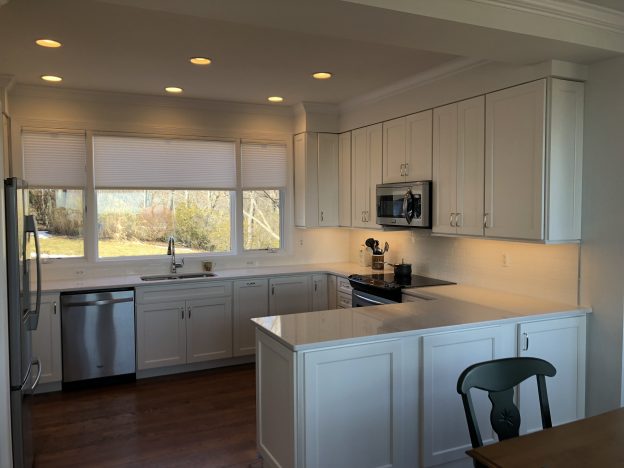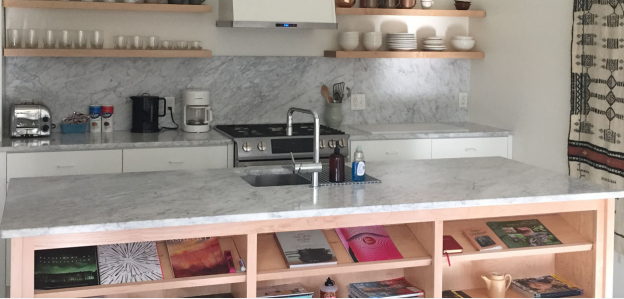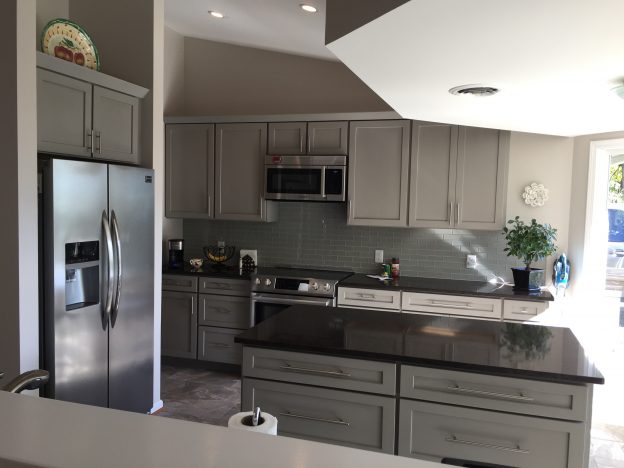If you’re considering upgrading your Western North Carolina kitchen and love the look of clean, simple lines, value high-quality craftsmanship, and prize functionality, then Shaker cabinets might be the way to go. Shaker style is trending in kitchens these days, and it’s not hard to see why. The Shakers, who were a religious sect that settled in New England in the 19th century, were craftsmen who believed in simplicity, utility, and honesty. Those values were reflected in the furniture they made, and 150 years later, their work has stood the test of time.
Many WNC homeowners choose Shaker style kitchen cabinets because they’re cost effective, are easy to clean, play well with other styles, and provide lots of options for hardware, accessories, and color.
Few things are as frustrating as kitchen cabinets that can’t stand up to your busy lifestyle. But Shaker cabinets are made with strong hardwoods such as maple, pine, cherry, walnut, and hickory, which will hold up for decades. And the Shaker five-piece construction method — one piece for the door panel and four boards that frame the face of the door — prevents your cabinets from warping and gives them extraordinary strength.
Shaker style kitchen cabinets work well with nearly any type of kitchen décor. Traditional Shaker cabinets are made with flat paneled doors and rail frames. You can stay with that design and add contemporary hardware for a more modern look, or add a beveled edge on the door and attach hardware like Hepplewhite or distressed nickel knobs for a more traditional appearance.
The Shakers favored simple, subdued colors, like red and yellow ochres, Persimmon blue, Venetian red, and chrome green. We’re seeing these colors coming back in favor in many WNC kitchens, but of course you can paint your cabinets to fit your color scheme, or leave them as finished wood. Many homeowners also love the clean minimalism of all-white Shaker cabinetry.
The Shaker style brings feelings of calm and serenity, which more people want to invite into their homes during these chaotic times. Once you get the look in your kitchen, you may even be inspired to use it in other rooms of your house!
For Shaker kitchen inspiration, check out this article from The Spruce.
To see Shaker home design ideas, take a look at this article from Fresh Home.
Mountain West Construction has over 25 years’ experience in the construction industry, and we’ve worked with many homeowners to completely remodel their kitchens. Call us today! We’ll be happy to consult with you to get the look you want.



